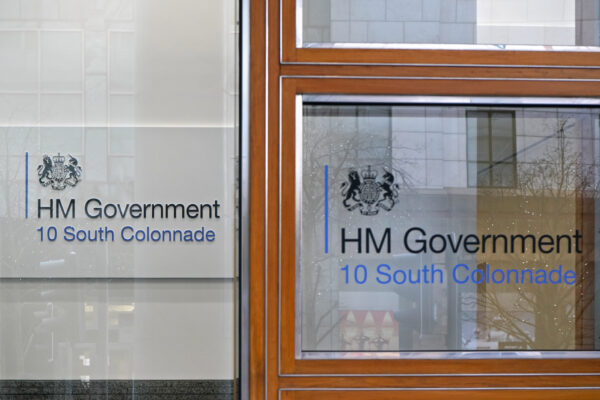Supreme Court finds that “deport first, appeal later” power results in unfairness contrary to the procedural guarantees of Article 8 ECHR
14 June 2017
The Supreme Court has today given judgment in R (Kiarie) v Secretary of State for the Home Department [2017] UKSC 42. In this article Garden Court North Chambers’ Joseph Markus, who represented Mr Kiarie (having been led by Richard Drabble QC and instructed by Tom Giles of Turpin & Miller LLP), explains the decision.
These appeals concerned the regime for certification under section 94B of the Nationality, Immigration and Asylum Act 2002, by which a foreign national offender could be deported first and only appeal later.
Each appellant, in response to a certificate issued under section 94B, brought judicial review proceedings challenging the lawfulness of the certificate. Each contended that the certificate resulted in unfairness, contrary to Article 8, in that appealing from outside the UK would deprive them of fair and effective access to an appellate remedy, access to which was guaranteed by statute.
The Supreme Court unanimously allowed the appeals and quashed the certificates.
Background
On 30 September 2013, at the Conservative Party Conference, Theresa May, then Home Secretary, announced that it was the Government’s intention to legislate so that “foreign criminals” should be required to bring any appeal against their proposed deportation from their country of origin, following their deportation.
On 28 July 2014, the Immigration Act 2014 received the Royal Assent. That act, by section 17(3), inserted a new section 94B into the Nationality, Immigration and Asylum Act 2002. Section 94B put into effect the statement of policy first announced at the Conservative Party Conference. It, together with associated policy guidance, provided that:
(i) The Home Secretary would possess a power to remove a foreign criminal from the UK for the period pending any appeal they may bring where to do so would not be contrary to section 6 of the Human Rights Act 1998;
(ii) A ground for exercising that power would be where the foreign criminal could not show that his or her removal pending appeal would give rise to a real risk of serious irreversible harm;
(iii) The Home Secretary, while retaining a discretion not to use the power, would endeavour to apply it in all cases where doing so would not breach the foreign criminal’s human rights;
(iv) The power would be applied only in those cases where the foreign criminal’s appeal against deportation stood at least some prospect of success; cases in which the appeal was bound to fail would fall to be certified by reference to a different statutory power.
On 12 May 2016, the Immigration Act 2016 received the Royal Assent. That act, by section 63, extended the operation of section 94B from cases concerning only the deportation of foreign criminals to all cases in which an appellant relied on human rights as a basis for resisting their removal from the UK. Section 63 of the 2016 Act entered into force on 1 December 2016.
Between 28 July 2014 and 31 December 2016, the Home Secretary had issued 1,175 certificates pursuant to section 94B in respect of foreign criminals. By 31 December 2016, only 72 of those whose appeals were certified had filed an appeal with the immigration tribunal from abroad. By 13 February 2017, none of those 72 appeals had succeeded.
The judgment
Lord Wilson JSC (with whom Baroness Hale DPSC, Lord Hodge JSC and Lord Toulson JSC agreed) in a powerful judgment holds that:
(i) There is an important public interest in foreign national offenders being able to prosecute their appeals against deportation effectively and under conditions of fairness;
(ii) It will in most cases be necessary for an appellant to give evidence at his or her appeal hearing if they are to be able to participate effectively and under conditions of fairness;
(iii) An appellant removed from the UK pending appeal would not be likely to be able to give evidence in support of his or her appeal;
(iv) A removed appellant would probably face insurmountable difficulties in obtaining the supporting professional evidence which can prove crucial to achieving success on appeal, including evidence going to risk of reoffending and evidence going to the quality and strength of a relationship with children; and
(v) Accordingly, there is no ECHR-compliant system for the conduct of appeals from abroad; removal of these appellants pending appeal would be unfair; and the certificates should be quashed.
Implications
It is difficult to see how, in the light of this judgment, section 94B can survive:
(i) The judgment does highlight a number of potentially surmountable problems, such as the deficiencies in and the non-availability of video link conferencing equipment both in the UK and abroad. However, it should be questioned whether there is either the political will or the money to fund a domestic and international system of video link conferencing facilities sufficient to ensure that every removed appellant is in a position to give evidence at their hearing; and
(ii) The judgment also highlights a number of likely insuperable obstacles, such as the fact that removal pending appeal will weaken the substance of an appellant’s appeal in an acutely unfair way and destroy an appellant’s ability to obtain a range of different forms of evidence – such as evidence of risk and evidence of a relationship with children – to put before the immigration tribunal.
The judgment reinforces the idea of the judicial review court being required, where appropriate, to determine issues of fact for itself potentially by way of oral evidence in cases which concern human rights. The idea of the court determining issues of fact for itself has been a controversial one in a number of fields.
Lastly, the judgment endorses and gives lasting effect to the analysis of the procedural safeguards implicit in Article 8 ECHR contained in R (Gudanaviciene) v Director of Legal Aid Casework & Anr [2014] EWCA Civ 1622, [2015] 1 WLR 2247. That judgment, and this, will put to rest, for the most part, the lengthy debate as to the applicability of Article 6 ECHR in the immigration and asylum context – it is not relevant which article applies in non-national security cases because the standards are now to be regarded as, in substance, the same.





